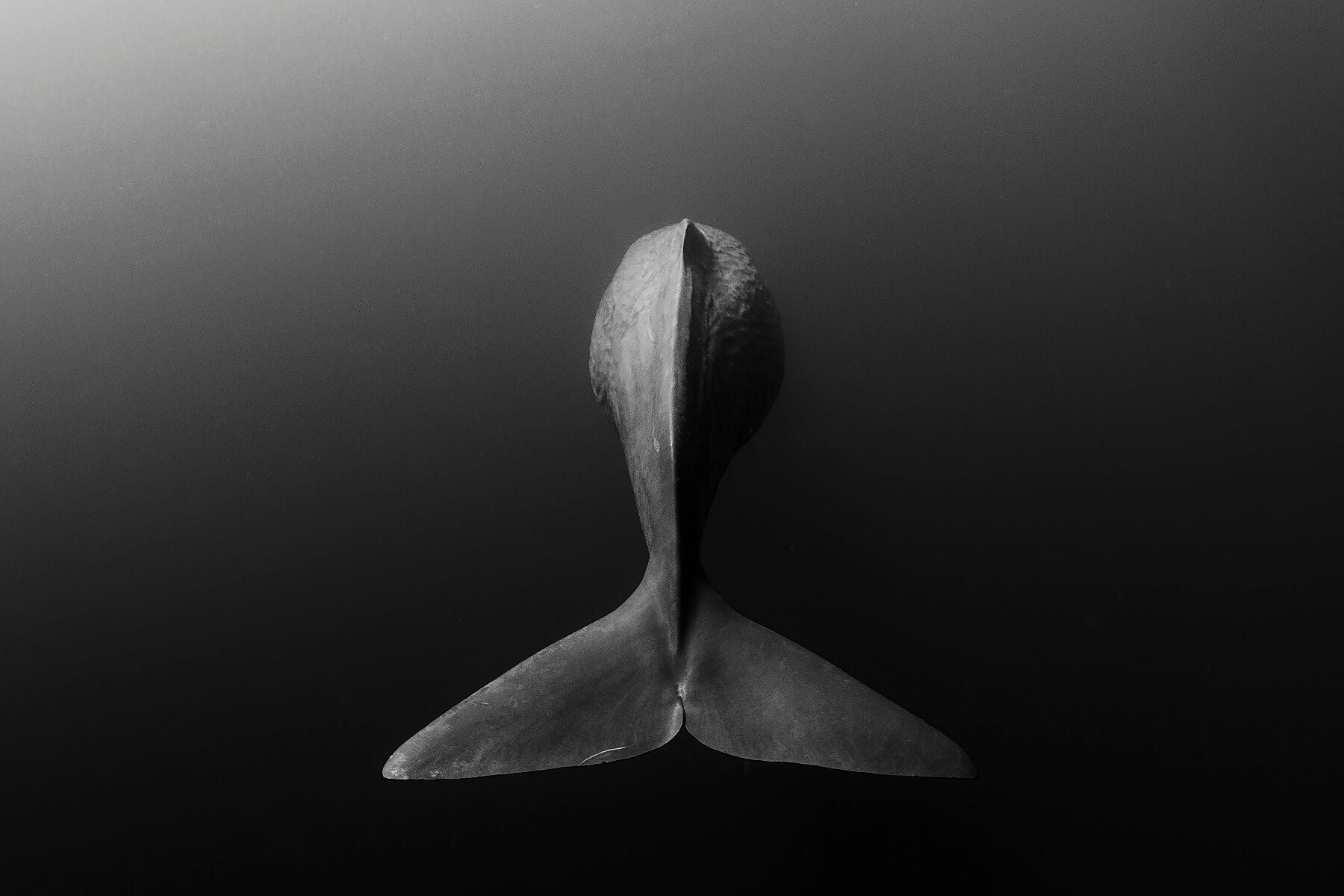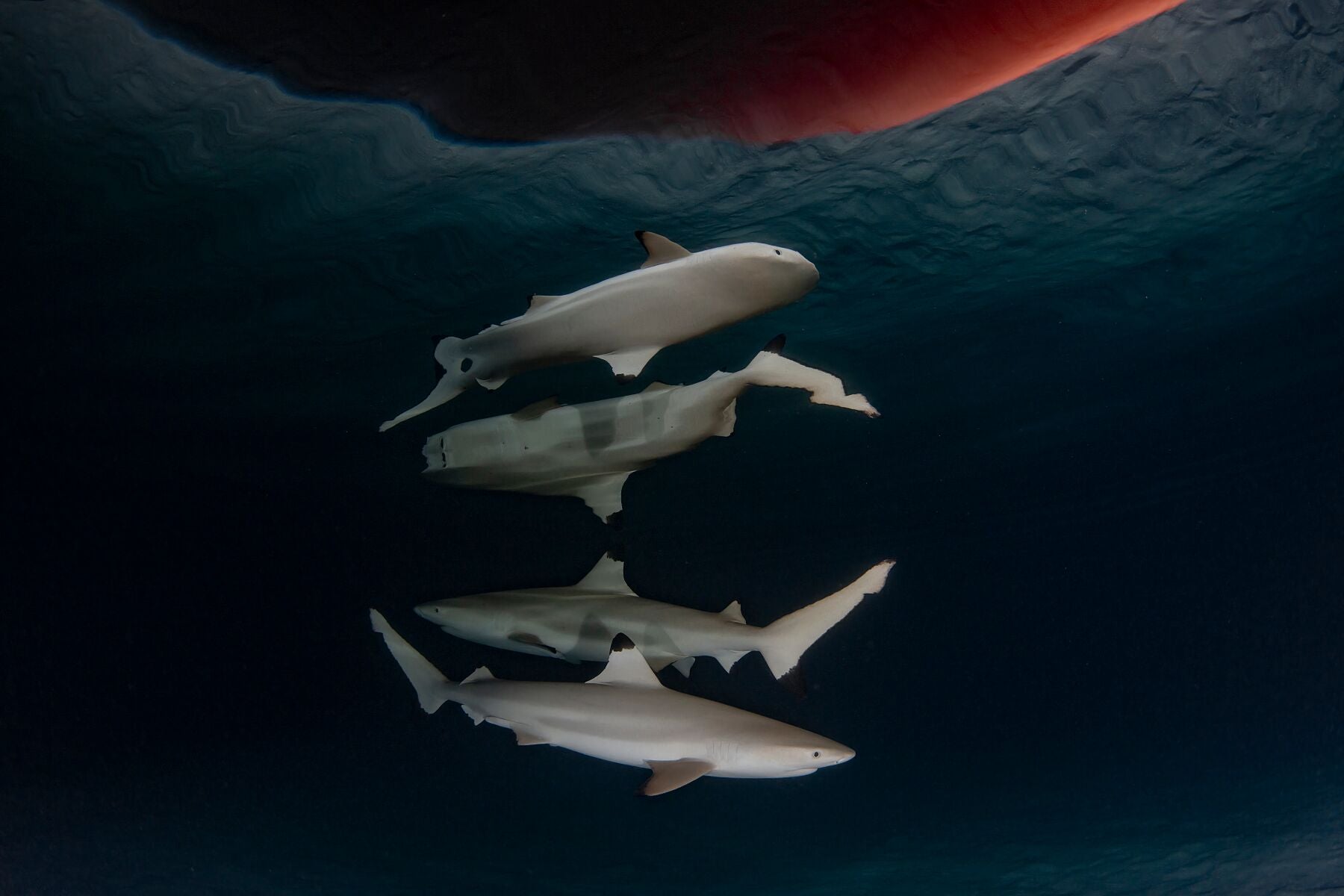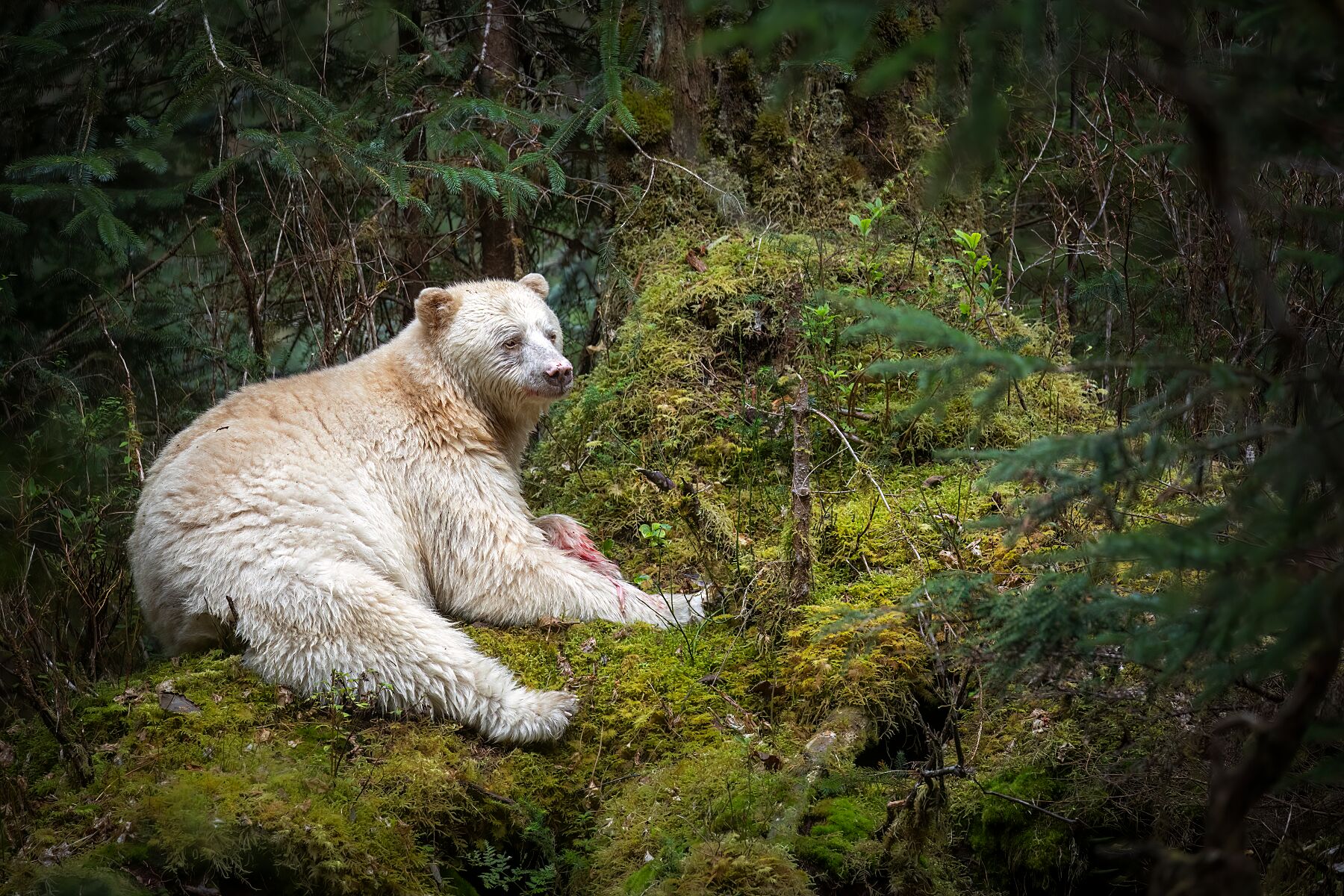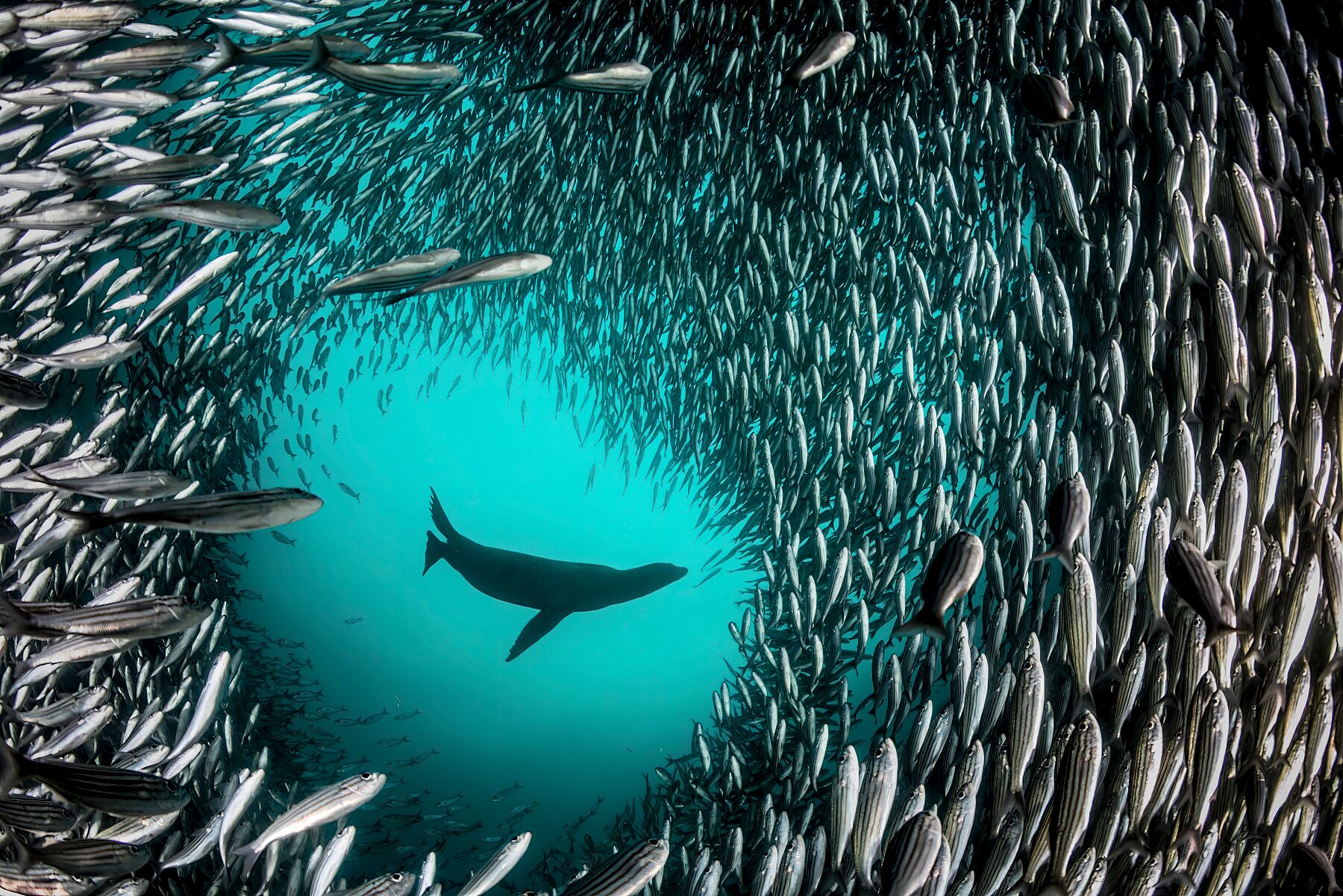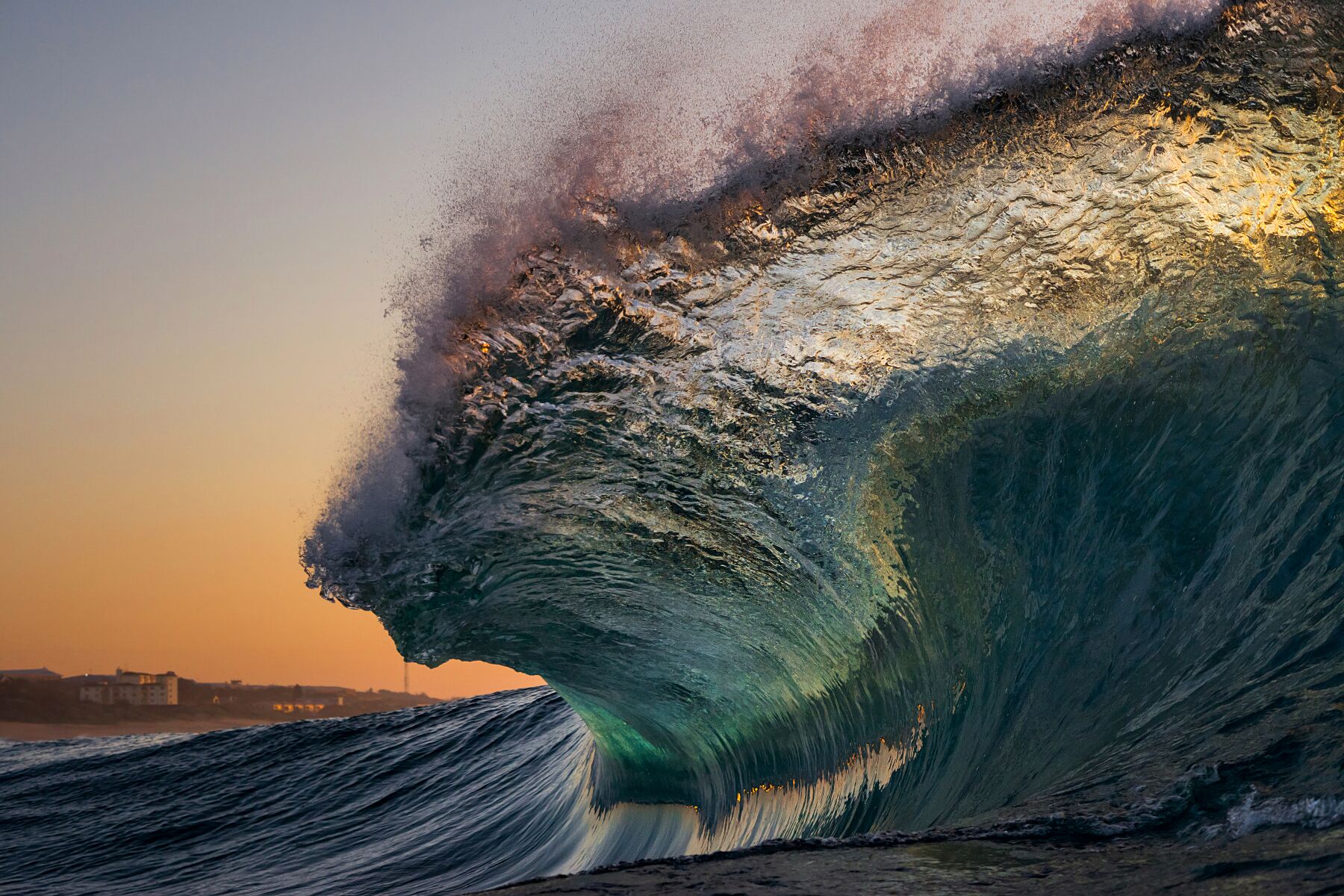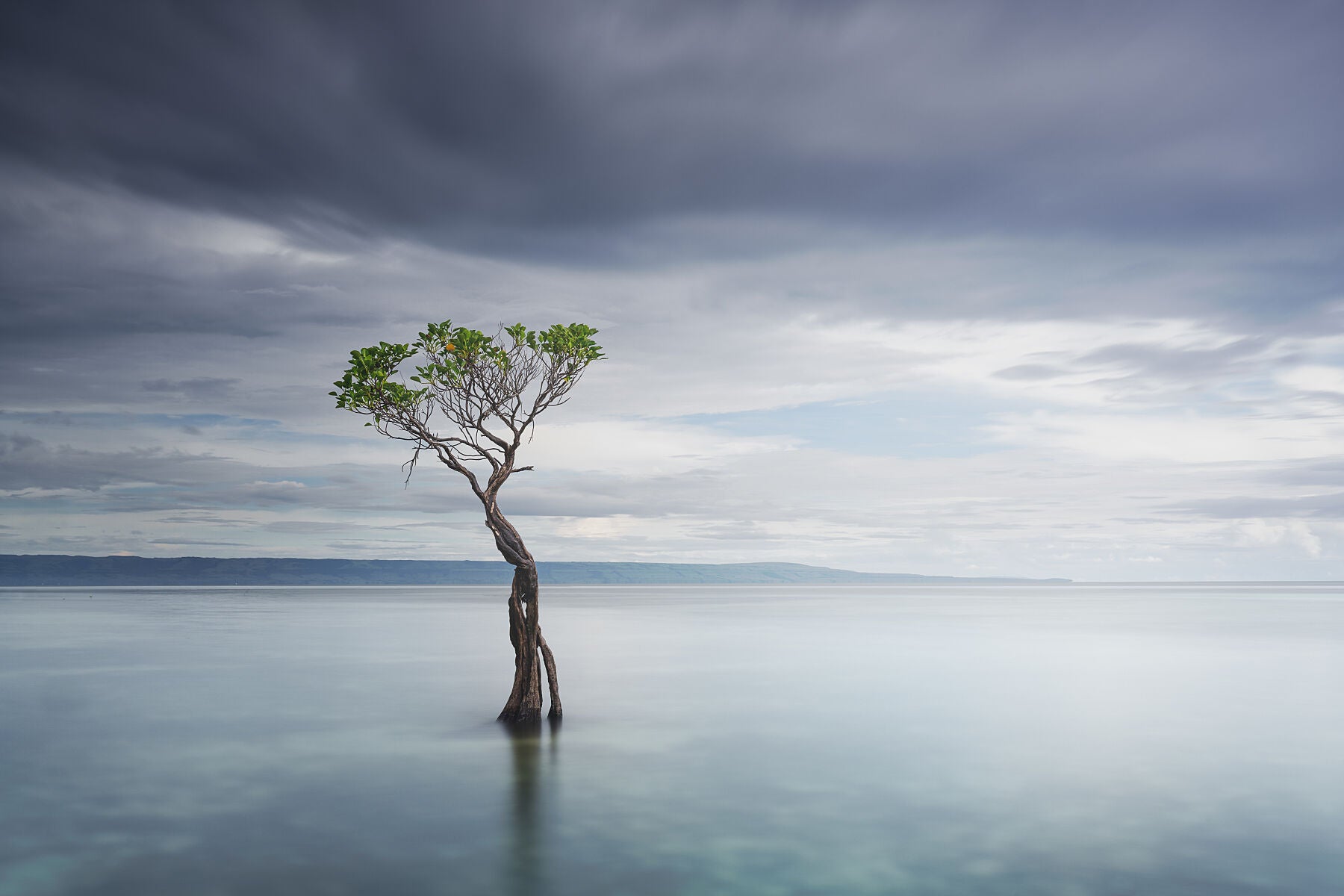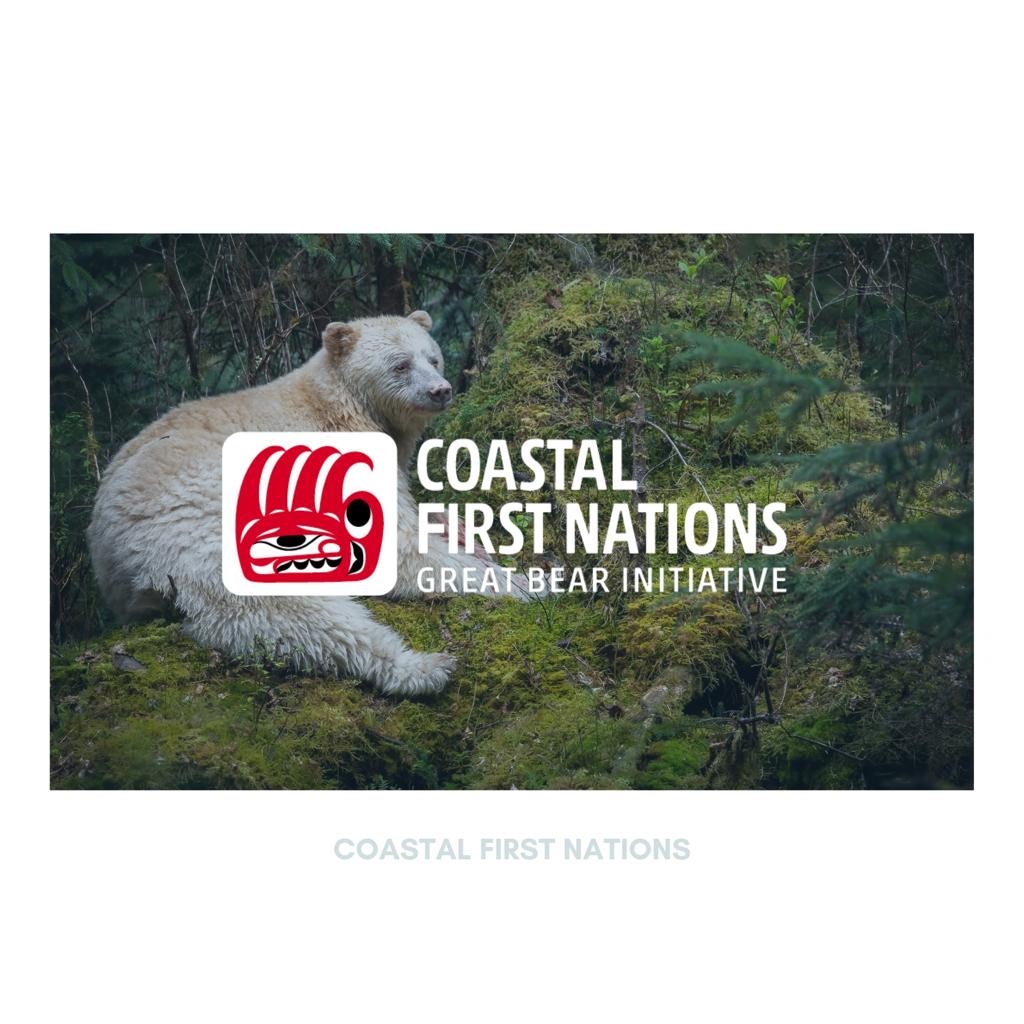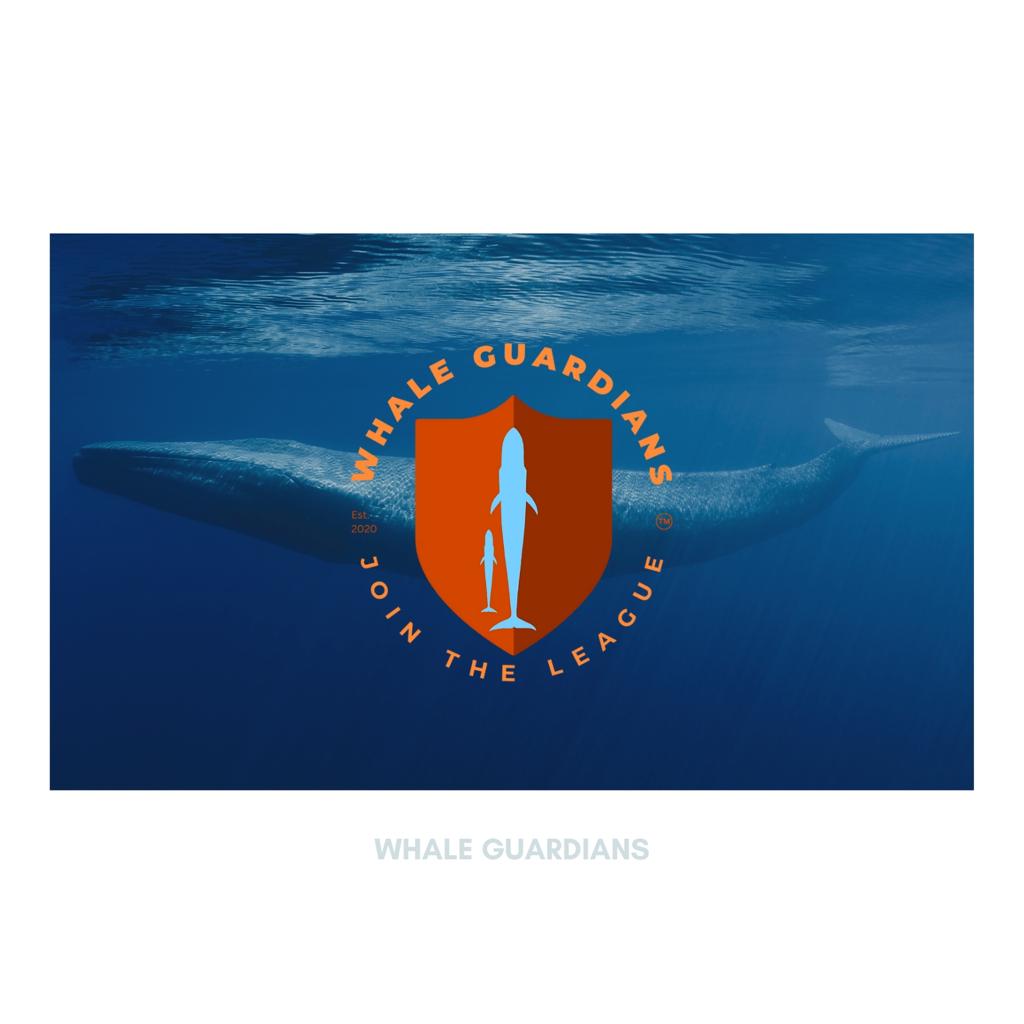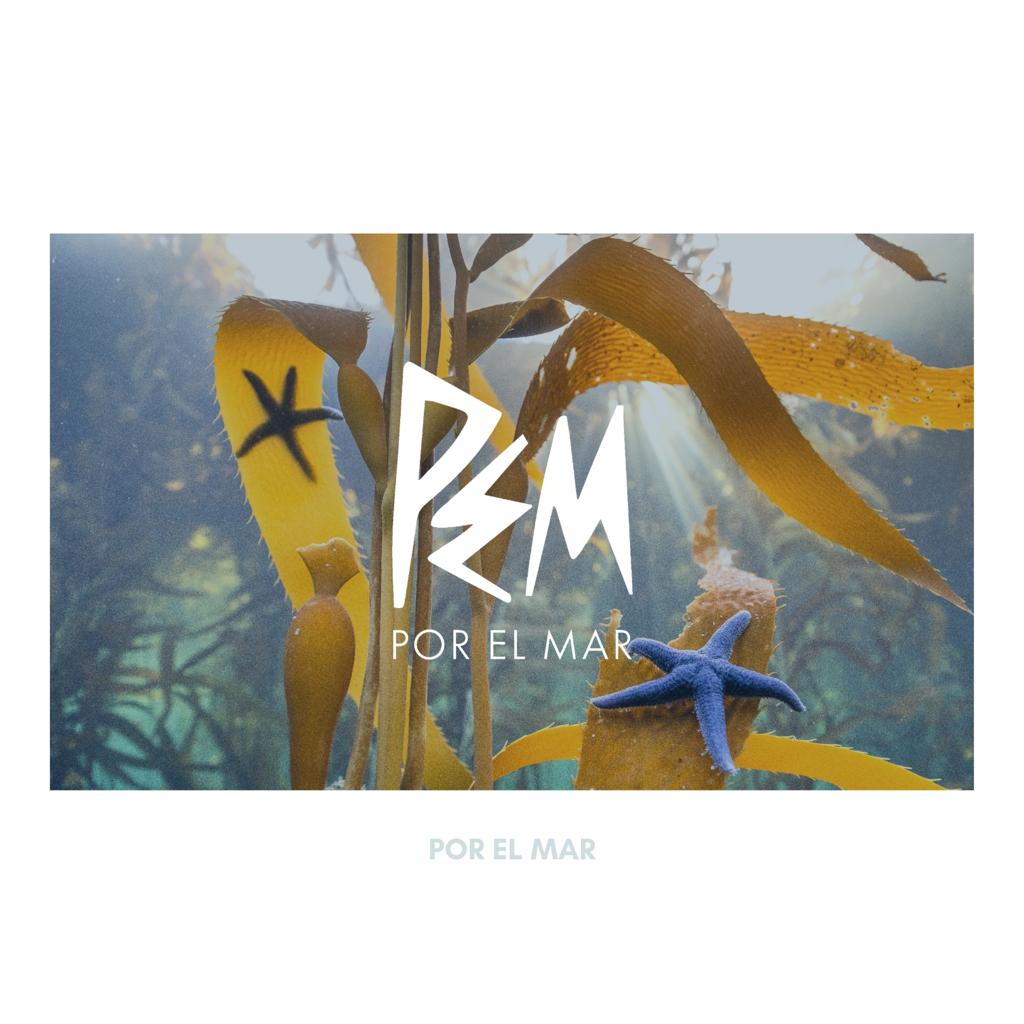Welcome to our Ocean Loving Community.
The inaugural edition of 100 for the Ocean in 2023 was a smashing success thanks to the support of each and every person who bought a piece of our artwork. 100 For The Ocean is a platform designed to raise important funds to support ocean conservation via targeted communication and education campaigns.
Our inaugural team of 100 photographers paired with SeaLegacy's communication channels enabled us to raise over $500,000 USD to increase ocean conservation initiatives through impact communications. 100 For The Ocean funds were strategically deployed to spotlight the influence of three organizations —Whale Guardians, Por El Mar (For the Ocean), and Coast First Nations of British Columbia—by endowing them with world-class media and impact communications assets to articulate their distinctive conservation missions. These campaigns will be distributed by both the beneficiaries and across SeaLegacy's large global distribution network.
In close consultation with these organizations, we have spent the past few months working with editors, scriptwriters, and production experts to create tailored communications assets that fit their strategy and goals while elevating the awareness of their critically important conservation efforts. We are on the verge of completing all three projects, and we are delighted to announce that the final media packages will be delivered in Q1 of 2024.
These comprehensive media and amplification packages include:
- Compelling video productions meticulously crafted to accentuate their conservation contributions, aiming to elevate their profile.
- Spotlighting the alignment of our beneficiaries goals with the goals of SeaLegacy - and distributing these campaigns in partnership with the beneficiaries across SeaLegacy's network to amplify the awareness and support of our partners.
- When possible, we are engaging earned media to expand the audience of supporters to our shared purpose pairing the beneficiaries with world class media brands. 100 for the Ocean recipients have benefitted from exposure on CNN, Katie Couric Media and other premier international and global outlets.
The production of such high-calibre media packages along with world class media distribution entails considerable expense and is only possible with the support generated through our fundraiser. There are conservation heroes everywhere, but limited funding means their communication efforts are always compromised, and therefore, their work is often invisible. As a collective of photographers deeply committed to the cause of conservation, we recognize the profound significance of bestowing upon these organizations the gift of sharing their conservation stories, missions, and goals in a compelling and visually engaging manner.
Our heartfelt gratitude extends to every supporter who made this initiative possible. Because of you we are investing in the future of our planet by expanding the ocean conservation conversation.
With heartfelt thanks,
Paul Nicklen, Cristina Mittermeier, and Chase Teron
Co-Founders 100 for the Ocean
More About Our 100 for the Ocean Mission & Motivation
Our goal is to not only raise awareness but to take concrete action.
The photography, the prints, the artwork all help grab your attention to help begin the conversation. By showcasing the work of 100 world-class photographers, 100 for the Ocean aims to draw attention to the beauty, complexity, and vulnerability of marine environments. Through powerful imagery, the project seeks to educate people about the importance of healthy oceans as allies in our fight against the threats they currently face.
The global ocean faces incredible challenges include, but are not limited to:
- Climate Change: Climate change is one of the biggest challenges facing the ocean. Rising temperatures, ocean acidification, and sea level rise are all impacting marine ecosystems and biodiversity. The ocean produces 50% of our oxygen that we breathe and it is a vital carbon sink.
- Overfishing & Poor Fishing Management: Overfishing is a major threat to the ocean's health, with many fish stocks being harvested at unsustainable levels. This can lead to declines in fish populations and impacts the entire marine food web. For example, it is estimated that up to 100 million sharks are killed each year, largely due to overfishing and the demand for commercial products (makeup ingredient listed as: squalene = shark liver) and for food delicacies. This represents a significant decline in shark populations, with some species declining by up to 90%.
- Pollution: Pollution, including plastic pollution, oil spills, and chemical pollution, is harming marine life and damaging marine habitats.
- Plastic Pollution: There are currently trillions of pieces of plastic in the ocean which add up to over 2 million tons of plastic currently cover the world’s oceans. With an additional 8 million tons of plastic entering the ocean every year. This pollution harms marine wildlife, damages marine habitats, and even enters the human food chain. To put this in perspective, a study from The 5 Gyres Institute reports that there are 21,000 pieces of plastic per person on the planet in the ocean.
- Habitat Loss + Biodiversity Loss: The destruction of marine habitats, such as coral reefs and seagrass beds, is a major threat to the health of the ocean. These habitats provide important homes and food sources for many marine species. Biodiversity Losses Since 1970: Since 1970, marine biodiversity has declined by an average of 36%, with some species experiencing population declines of up to 80%.
- This loss is attributed to overfishing, habitat destruction, pollution, and climate change. The destruction of marine habitats, such as coral reefs and seagrass beds, is a major threat to the health of the ocean. Coral reefs are particularly vulnerable, with an estimated 50% already lost or severely damaged. Additionally, pollution from various sources, including oil spills, sewage, and agricultural runoff, harms marine life and damages habitats.
- Species: Invasive species can disrupt marine ecosystems and displace native species, leading to declines in biodiversity and changes in ecosystem dynamics.
- Ocean Acidification: As the ocean absorbs carbon dioxide from the atmosphere, it becomes more acidic, which can have negative impacts on marine life, including corals and shellfish.
- Marine Protected Areas from Poor Governance: Less than 8% of the ocean is considered a Marine Protected Area. Weak laws and enforcement, can lead to unsustainable and damaging practices in the ocean, including overfishing and pollution. There’s no accountability nor ownership of MPA’s.
Funds raised from 100 for the Ocean print fundraiser is going towards these 7 key wedges through amplifying and helping the selected ocean NGOs (Non-government organizations).
*Our group of 100 contributing photographers has nominated and voted on underfunded, under-represented organizations from around that world that need our help. We will announce the 5 selected mid May!
- Protect more of the ocean. By advocating for the protection of at least 30% of the ocean real estate of the countries who have signed the CBD by the year 2030 (i.e., the 30x30 goal).
- Protect more species. By supporting protections through international agreements like CITES, and local governments.
- Restore degraded habitats. By promoting the restoration of habitats like mangrove forests and coral reefs
- Stem the flow of pollution to the ocean. By supporting technological innovation and policy change
- Rethink how we source food from the ocean. By advocating for policy change, public awareness and innovation in aquaculture practices and plant-based seafood alternatives.
- Recast the ocean as a solution to climate change. By contributing to the restoration and protection of blue carbon sinks, the creation of blue carbon marketplaces, and the support of innovative solutions,
- We must achieve Ocean equity and justice for coastal communities. All the work that we do in each of the wedges has to be viewed through this lens to make sure the solutions we are proposing do not leave people or planet behind. We also must identify and support the next generation of ocean change-makers from diverse communities across our planet.
Coastal First Nations
Coastal First Nations is a unique alliance of nine Nations living on British Columbia’s North and Central Coast and Haida Gwaii. Each Nation has its own distinct culture, governance and territory.The Traditional Territories of our member communities lie in the Great Bear Rainforest –one of the largest temperate coastal rainforest systems left on Earth – and on the coastal shores of our traditional waters.First Nations have forged a rich culture here. Our culture, language and livelihoods are deeply connected to the riches of rainforest and ocean.For thousands of years, our people carefully managed an abundance of resources – ancient cedars, herring, salmon, halibut, shellfish and more. We support:
- planning for marine and land resources in the Great Bear region
- increased local control and management of forestry and fisheries
- sustainable development through ecosystem-based management
- capacity building in our communities
- partnerships with government, industry, environmental groups and others
Whale Guardians
Each year 100’s, possibly thousands of great whales around the globe are unintentionally being hit, injured and killed by large ships.
These mortalities, are stopping some whale populations from recovering to their pre whaling abundance.
We map shipping activity against whale sighting data to determine where co-occurrence of whales and vessels is happening.
We then create a tailor made document on the best practices to reduce these lethal and unintentional ship strikes in each particular location.
Our program makes the whale ship strike problem visible urgent, and actionable.
The Whale Guardians™ program produces co-occurrence maps, develops best practices, and builds partnerships with all industry stakeholders.
Por el Mar
Pol el mar is a non-profit organization based in Argentina that is dedicated to protecting and conserving marine biodiversity in Argentina and the South Atlantic.Pol el mar’s work focuses on scientific research, education, and advocacy, with a particular emphasis on protecting threatened and endangered species and their habitats. They conduct research on marine ecosystems and species, and work to raise awareness about the importance of marine conservation through educational programs, workshops, and public outreach.One of Pol el mar’s key initiatives is their work to protect the Southern right whale, which is an endangered species that migrates to the coast of Argentina to breed and calve. The organization conducts research on the behavior and biology of these whales, and works to promote responsible whale watching practices that do not harm whale populations.Overall, Pol el mar is a passionate and dedicated organization that is working to protect the marine environment in Argentina and beyond through scientific research, education, and advocacy.


